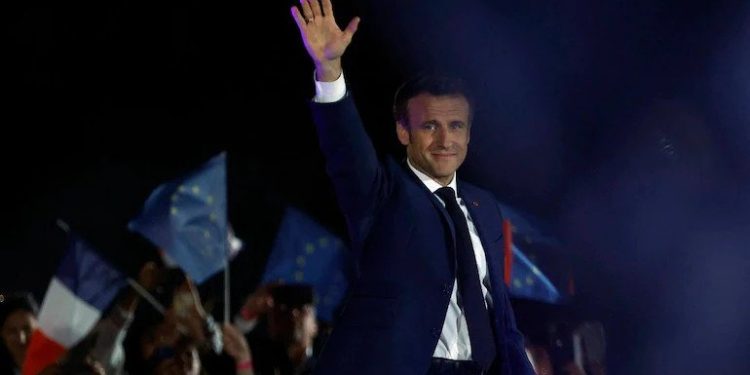Emmanuel Macron has won his second consecutive election and is President once again. The French elections, results of which came out Sunday, showed Macron with a healthy lead of 59 per cent against 41 per cent of his far-Right opponent Marine Le Pen. The robust victory of France’s middle of the road President Macron is good news for the Western alliance on behalf of Ukraine while it may be bad news for Russia’s Vladimir Putin. Macron’s reelection is also a victory for the European Union and a loss for those who wished it weakened or broken. On the other hand, Marine Le Pen’s defeat was an important blow against nationalist forces in Europe which are against an open immigration policy, particularly in relation to Moslems.
Macron’s victory percentage reflected his success in making the voters aware of the dangers of a Le Pen presidency. Many key French voter groups were frustrated with inflation. The general feeling was that Macron was out of touch with the people’s needs. Progressive voters felt that he had reneged on his 2017 poll promise that he would be neither Left nor Right. They felt he became a cheerleader for big industry. All sides agreed that the voter turnout was at its lowest in decades. The reason was fatigue ran high. The voters seem to have rejected Le Pen’s call for a shedding of European co-operation and a rapprochement with Russia. Her economically Left wing campaign earned her a better score than in 2017. It is estimated that 17 per cent of the far-Left firebrand Jean-Luc Melenchon’s first round voters backed Le Pen in the runoff. Macron’s majority did not seem to reflect voter enthusiasm for him, rather rejection of Le Pen, a politician who is constrained by her party’s long standing anti-immigration stance as well as a pro-Russia and anti-NATO foreign policy. It was also rumoured that Le Pen’s victory could have resulted in the creation of a situation whereby the EU would have witnessed a ‘Frexit’. In a campaign that started off with 12 candidates, the final two – Macron as France’s youngest leader since Napoleon and Le Pen, the three time aspirant to become the nation’s first female president- were always in a tight fight. After a hard fought first round among all 12 candidates two weeks ago, the top two faced-off in the runoff Sunday.
Even after his win, Macron still sits uneasy. The elections to the National Assembly will take place in June this year. The 577 seat House will decide on who will be the Prime Minister of France. Macron and his party Republic on the Move need to secure a comfortable majority in the Assembly to enable him perform effectively. His present victory margin could give Macron some relief that he may do well in the upcoming elections. As the only nuclear power country in the EU, Macron’s desire is that France should lead not only the European Union but also NATO and the Free World and be prepared to stand against tyranny.
While his dreams of leading from the front sound good and logical, yet Macron’s future seems to be full of challenges. Controlling inflation, reinvigorating the French economy which he had successfully revived in his first term as also tackling the growing refugee and immigrant crisis to keep his original French voter happy will be some of the tough tasks ahead of him. How Macron and France perform in the next five years will greatly matter towards creating stability in Europe that is witnessing a worrisome war at present.






































